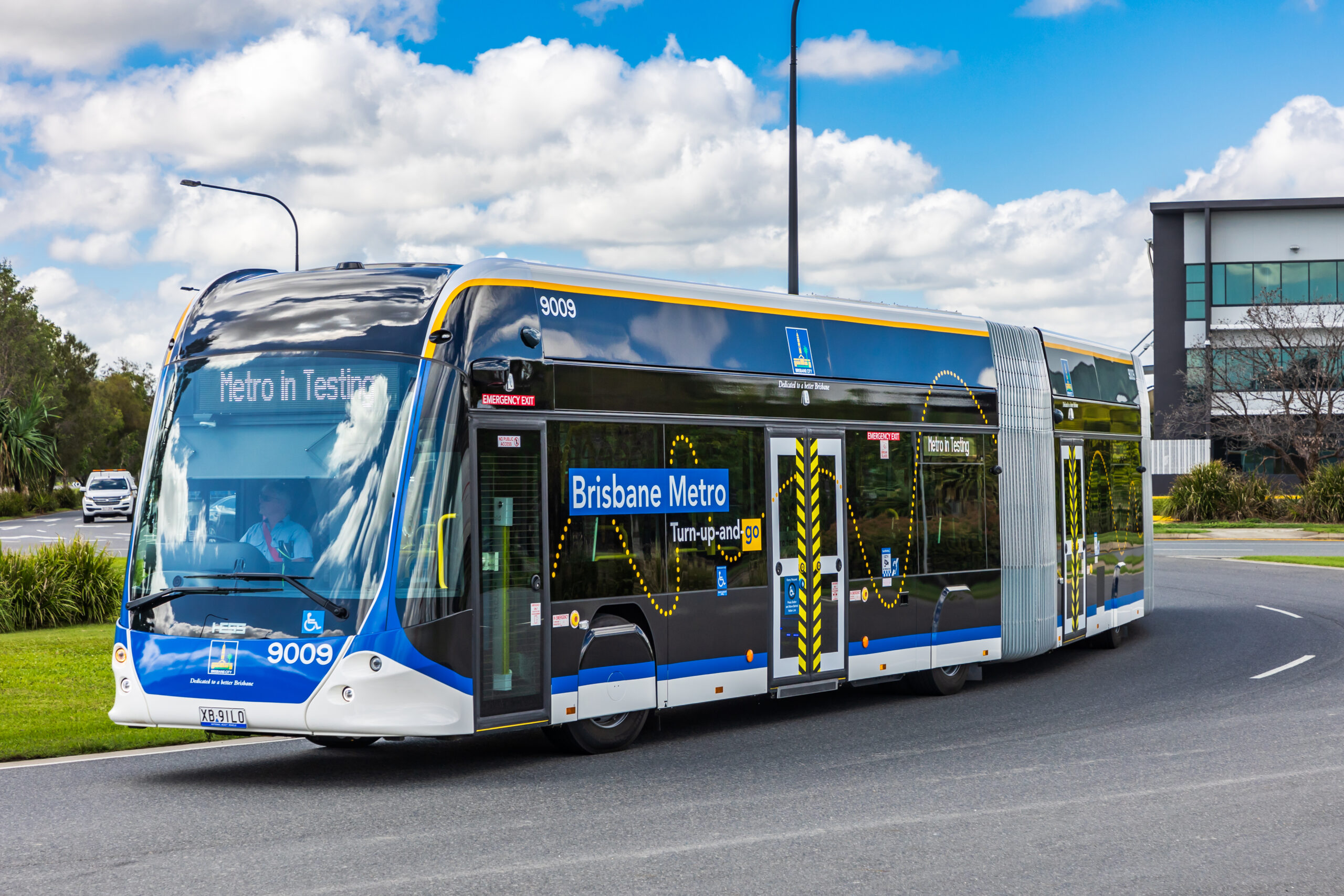
BasiGo has installed DC fast chargers in Nyahururu and Thika to ensure smooth inter-city operations.
Having followed progress in Africa’s electric mobility sector over the past decade, I get very excited whenever a new game-changing development is announced. That’s because it gives us an opportunity to reflect on the progress made over this past decade. From humble beginnings where a few EV enthusiasts imported some used Nissan Leafs from Japan and Europe for personal use, to startups experimenting with converting old ICE motorcycles, minibuses, Land Rover Defenders, and Toyota Land Cruiser Safaris to electric vehicles, the market has come a long way!
The electric mobility sector is gaining traction in places like Kenya especially for players tackling real problems in key sectors such as public transport. In Kenya, for example, the motorcycle taxi industry and the minibus sector are the main pillars of the public transport system. It is no surprise then that the majority of the players entering Kenya’s electric motorcycle sector have focused on electrification of motorcycles. Motorcycles make up over 50% of the country’s fleet, which stands at about 4 million vehicles, 99% of which are still ICE vehicles. It’s no surprise then that motorcycles are seeing most of the action in Kenya, and at the moment, the motorcycle sector is the main driver of electric vehicle adoption. In 2024, just over 7% of new motorcycle registrations were electric, followed by 4% for electric tuk tuks, 1.1% for electric buses and minibuses, and then 0.18% for electric cars.
The minibus sector is also gaining momentum in Kenya thanks to companies such as BasiGo. BasiGo launched its operations about 5 years ago with a revolutionary Pay-As-You-Drive model, quickly gaining the trust of public service vehicle operators. With Pay-As-You-Drive, owners can acquire an e-bus for a minimal upfront cost. Owners then pay an affordable Pay-As-You-Drive fee which includes all charging and maintenance services provided by BasiGo. Since Pay-As-You-Drive is mileage-based, owners only pay if their electric bus is operating. BasiGo says with Pay-As-You-Drive, owning an electric bus is as easy as driving.

Under the electric bus lease program, public service vehicle operators can lease the entire electric bus with a low security deposit and an affordable Pay-As-You-Drive fee.
The Pay-As-You-Drive services include:
- Free charging at BasiGo depots
- Nightly inspection and cleaning
- Free maintenance at 15,000km intervals
- Roadside assistance
- Comprehensive insurance
- Bus monitoring and analytics through PAYD
- 90% Uptime guarantee per month
For the full bus lease fee including the battery, Pay-As-You-Drive works out to be around 1 million Kenya Shillings security deposit plus 70 Kenya Shillings per km. Alternatively, public service vehicle operators can purchase the e-bus without the battery for a similar price to a diesel bus. The operator can then just lease the battery from BasiGo through an affordable Pay-As-You-Drive fee.
For the battery lease fee, after the operator purchases the bus, Pay-As-You-Drive for the battery works out to be around 44 Kenya Shillings per km.

BasiGo has been very successful with this model, initially focusing on intracity bus operators in Nairobi which use the larger 30+ seat buses. BasiGo is now expanding its operations to include intercity service providers. BasiGo has just launched Kenya’s first pilot program for electric matatus on intercity routes. BasiGo will offer smaller 16- to 19-seater minibuses for these intercity routes, inline with the needs of the operators. The new pilot program, in partnership with 4NTE SACCO and Manchester Travellers Coach SACCO, marks a significant milestone in extending clean, reliable public transport solutions beyond Nairobi and into regional routes. 4NTE SACCO will pilot a BasiGo electric matatu on the Nyahururu–Nyeri and Nyahururu–Nakuru routes, while Manchester SACCO will operate on the Thika–Nairobi corridor.
Each van offers a range of up to 300 kilometers on a single charge and a 1.5-hour recharge. To support seamless inter-city operations, BasiGo has installed charging stations in Nyahururu and Thika. The vans will be offered through BasiGo’s Pay-As-You-Drive lease model, designed to lower the cost barrier for operators looking to electrify their fleet.

“We are delighted to extend electric mobility beyond Nairobi and electrifying an iconic part of Kenya’s history- the matatu,” said Moses Nderitu, the Managing Director, Kenya at BasiGo. “By partnering with visionary SACCOs like 4NTE and Manchester, we’re showing that electric mobility is not only possible but practical for intercity and intercounty transit.”
BasiGo also plans to locally assemble these electric vans in Kenya, creating new opportunities for job growth and skills development in the country’s clean energy sector. As with its electric buses, BasiGo will provide full after-sales support for the vans, including servicing and maintenance. “We are excited to be early adopters of this technology, especially along inter-city and inter-county routes,” said Wilfred Daniel Kimotho, Chairman of 4NTE Sacco. “This is about embracing innovation and delivering better service to our customers. This partnership places us at the forefront of a transport revolution which is electric, efficient, and built for the future.”
BasiGo aims to deploy over 1,000 electric vans across Kenya in the coming years, supporting the country’s climate commitments, meeting regional mobility needs, and positioning Kenya as a blueprint for clean, inclusive transport solutions.
It’s great to see all this progress in the public transport sector. This means more people will get to enjoy the wonderful world of electric mobility, and on top of that, operators get to benefit from lower operational costs. A lot more work is still needed for Kenya to realize its potential in electric mobility. For example, targeted tax reliefs to enhance local assembly competitiveness and stimulate industrial growth under the “Buy Kenya Build Kenya” policy are needed for the industry to really kick in. Some of the proposed fiscal measures and justifications in a recent EMAK white paper are centered on a tiered system of fiscal incentives, including:
- Tax exemptions on VAT, import duty, and excise duty for EVs, batteries, and EVSE.
- Comprehensive incentives under a Special Operating Framework Agreement for large investors (e.g., 0% corporate tax, exempted stamp duty, and customs duties).
These measures aim to:
- Reduce total cost of ownership for EVs.
- Catalyze local value addition.
- Attract foreign direct investment.
That’s a good start for Kenya’s electric bus sector, thanks to companies like BasiGo.
Images courtesy of BasiGo
Sign up for CleanTechnica’s Weekly Substack for Zach and Scott’s in-depth analyses and high level summaries, sign up for our daily newsletter, and follow us on Google News!
Have a tip for CleanTechnica? Want to advertise? Want to suggest a guest for our CleanTech Talk podcast? Contact us here.
Sign up for our daily newsletter for 15 new cleantech stories a day. Or sign up for our weekly one on top stories of the week if daily is too frequent.
CleanTechnica uses affiliate links. See our policy here.
CleanTechnica’s Comment Policy




